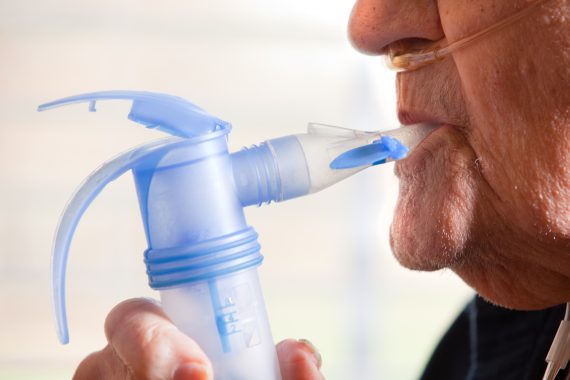GPs ‘should check COPD registers’ as thousands may be misdiagnosed

GPs should check their COPD registers, say researchers, after an audit found patients may be misdiagnosed.
Checks of Welsh GP records carried out by the Royal College of Physicians found most patients did not have a gold-standard spirometry test record and of those that did a quarter had a result which suggested they did not actually have COPD.
The audit, done in 2014/15, in 61% of practices in Wales, found that only 19% of COPD patients had a post-bronchodilator FEV1/FVC recorded, the researchers reported in the British Journal of General Practice.
Among these patients, 25% had incompatible spirometry (FEV1/FVC≥0.70, suggesting they may have been misdiagnosed.
Potential reasons may include issues around correct use of read codes, patients being diagnosed in secondary care, and difficulty accessing tests, the researchers said.
The results have already led to several funded initiatives to improve COPD care in Wales, including an optional practice audit as part of QOF, training offered to more than 1,000 nurses and a quality tool due to be launched later this year to help GPs identify patients who may need review.
But the researchers said similar audits done in individual CCGs in England suggest the problem is not confined to Wales and encouraged practices to check their records.
English practices did not take part in the RCP audit and there is no national programme although some CCGs have opted to fund work on COPD, the BMA said.
The researchers calculated that at the time of the audit, as many as 16,000 patients may have been misdiagnosed in Wales.
They also estimated that the total cost of inhalers prescribed for audit patients with incompatible spirometry and no known asthma was approximately £1m/per year.
Study leader Dr Marie Fisk from the University of Cambridge said the reasons for the results they found were complex and included the fact that in some patients spirometry is not the right test to do and that interpretation of tests was difficult.
The researchers concluded that ‘a concerted effort to determine an accurate diagnosis in these patients is urgently needed’ to reduce potential harm and medical costs and there was no reason to think the situation in England would be different.
‘Some of the clinical team have run similar audits in their English CCGs and found similar results so yes we would recommend every English practice runs searches of its QOF register to find who has not had post BD spirometry and who has had it but has a result with FEV1/FVC ratio =>0.7.’
She added that Wales had taken the results very seriously and put in place a range of interventions.
Dr Jerome Donagh, a GP in Bridgend and a member of the Wales Respiratory Health Interest Group, said part of the findings were related to data issues including inappropriate coding.
Also that diagnoses were commonly made in secondary care then recorded in GP systems and was not just an issue for primary care to address.
But that in response to the findings they have already made changes.
‘GPs were offered three of five topics to focus on as part of QOF and one of those was COPD where GPs were asked to look at their register and if needed bring people in or flag up on their file that they needed a review.
‘Also 1,000 nurses and healthcare assistants have now done spirometry training and there are another 200 on the waiting list and that has made a huge difference.’
‘Wales is probably leading on this in the UK now.’
A tool to help GPs manage their COPD registers which will also include training videos is set to go live later this year in Wales, he added.
Dr Peter Saul, co-chair of RCGP Wales said they welcomed the audit but GPs are under a huge amount of strain and other members of the practice team can take on this work where appropriate.
‘In the case of spirometry, given the pressures on the GP workforce, it is important that other members of the multidisciplinary team are given the relevant training that is required to carry out these tests.’
Pulse July survey
Take our July 2025 survey to potentially win £1.000 worth of tokens

Visit Pulse Reference for details on 140 symptoms, including easily searchable symptoms and categories, offering you a free platform to check symptoms and receive potential diagnoses during consultations.










